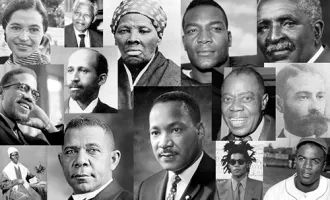
This Date in UCSF History: Men Should Own Up to ‘Women’s Issues,’ Says Former Pro Athlete
Originally published in Synapse on December 19, 2003.
Why is the greatest insult one can hurl at a boy is “you throw like a girl?” Former professional athlete Don McPherson came to UCSF as part of the Student Enrichment Series on November 18 to address that and other questions relating to men and male violence against women.
“Four women are killed by men every day in this country,” McPherson told a larger-than-usual audience at the final lecture of the series for 2003.
He noted that issues like violence against women, rape, and sexism are so-called “women’s issues.” He disagrees strongly with that.
“These are men’s issues,” McPherson stated flatly. “Historically, we call them women’s issues, which allows men to ignore them.”
McPherson, now affiliated with Adelphi University in New York, has spent the last nine years educating men on violence against women, as well as counseling young males about drug and alcohol abuse.
He got interested in such topics when, as a star quarterback at Syracuse University, he was asked to give a talk on drunk driving.
“All I knew about drunk driving was how to do it,” he said. “The only reason I was being asked was because I was the quarterback on the football team.”
But that unlikely seed planted a career that takes McPherson, who played professional football for seven seasons in the NFL and Canada, around the country talking to students at college campuses.
He admitted UCSF was a somewhat different venue for him; he usually speaks to fraternities and athletes. But his message clearly reverberated to those who heard his provocative talk.
Among his more interesting comments:
“If we heard there was a hostage situation going on right now at a local high school, that a student was armed in the school, how many of us would assume that the armed student was a girl?”
“Scare tactics don’t work when talking to young people about drug and alcohol abuse.”
“We hide behind our fear. We have been raised NOT to talk about these issues.”
“Silence allows us to pass the problem along to a different generation.”
McPherson recounted how he saw a woman chastise her crying three-year-old boy in a crowded airport by telling him, “Be a man!”
The child immediately stopped crying. “What kind of message did that boy get?”
McPherson asked challengingly. “Does he get a message that it’s OK to express your feelings, it’s OK for men to cry?”
Society puts boys inside a box, McPherson said, a box where only such manly virtues as strength, toughness, fearlessness, and silence are the approved values.
Any behavior outside that box leads to savage putdowns from peers; ‘You throw like a girl’ being perhaps the most painful one. But there is a cost to be paid for such repression.
As McPherson summed it up, “Why should I give a damn about other people’s feelings when no one cares about my own?”
As he made clear, being in that box is a trap from which many men cannot escape. The need to be in control can extend to the mundane — the famous male refusal to ask for directions when lost — to more serious matters, such as being unable to show any vulnerability, and of sweeping feelings under the carpet.
Language is one way boys are kept in the box.
“Boys hear sexist and homophobic language incessantly,” McPherson noted. Women and gays become what McPherson called “less than” people, people’s whose feelings can be ignored and whose basic rights can be trampled.
Repeatedly noting that violence against women is a problem that can only be solved by men, McPherson urged “men to confront other men” in this area.
Only by showing our sons that there is no harm in a man expressing his emotions, showing vulnerability, and being able to cry, can we begin to break boys out of that imprisoning box.
By raising better men, we can only hope that the violence against women that pervades our society will someday be only a painful memory.



